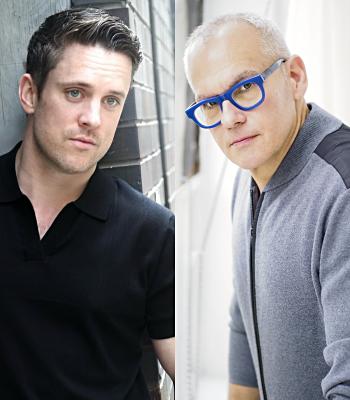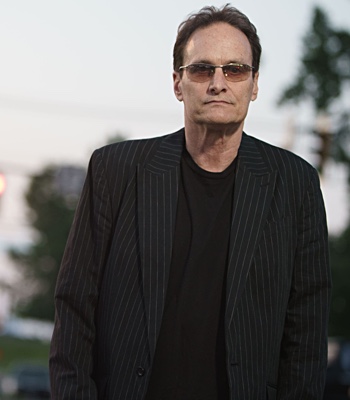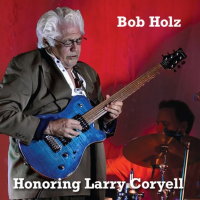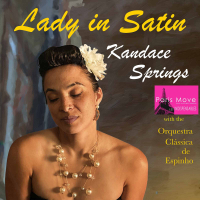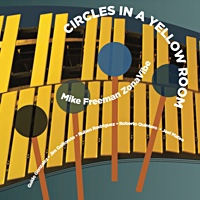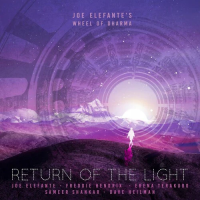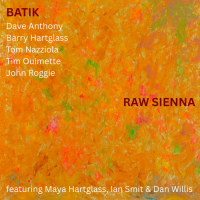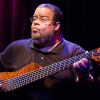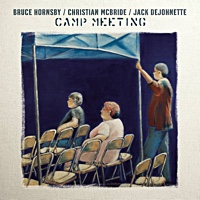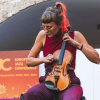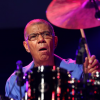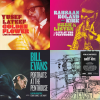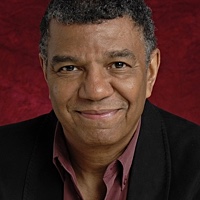Home » Search Center » Results: Russell Perry
Results for "Russell Perry"
The Alto After Bird - Pepper, Woods, McLean, Adderley (1957 - 1960)

by Russell Perry
When Charlie Parker died at 34 in 1955, it was as if an ancient tree fell in the forest with the resulting sunlight promoting the growth of numerous alto saxophone progeny. Art Pepper appeared in Stan Kenton's Orchestra in 1950 and by 1953 was recording as a leader while still collaborating with West Coast colleagues like ...
Vocalese (1952 - 1961)

by Russell Perry
Arising out of bebop vocals, a number of singers in the 1950s began to replicate famous instrumental solos with the human voice. The practice, initiated by Eddie Jefferson, King Pleasure and Annie Ross was known as vocalese and reached its peak in the extraordinary recordings of Lambert, Hendricks & Ross. Playlist Host Intro 0:00 ...
Jazz Singers in the 1950s – Sarah Vaughan, Helen Merrill, Dinah Washington and Abbey Lincoln (1954 - 1962)

by Russell Perry
Many jazz singers of the 1950s continued the tradition of recording with major instrumentalists who were given the space to improvise, feeding off the collaboration. In 1954, EmArCy records matched three of their singers, representing the wide range of their offerings--Sarah Vaughan, Dinah Washington and Helen Merrill--with jazz ensembles featuring their rising star, trumpeter Clifford Brown. ...
The Experimentalists: George Russell, Cecil Taylor, Ornette Coleman and Eric Dolphy (1956-1960)

by Russell Perry
In the wake of Charles Mingus, John Coltrane and Sonny Rollins came a wave of players eager to experiment further within the broadening definition of jazz. Among the most durable of this next generation are composer George Russell, pianist Cecil Taylor, alto saxophonist Ornette Coleman and multi-reed player Eric Dolphy. The late 1950s recordings of Russell, ...
The Experimentalists – Charles Mingus, Sonny Rollins, and John Coltrane (1956 - 1959)

by Russell Perry
In his book “Hard Bop: Jazz and Black Music 1955-1965," David Rosenthal outlines a group of musicians within the hard bop idiom that he identifies as “experimentalists," describing them as ..."consciously trying to expand jazz's structural and technical boundaries: for instance, pianist Andrew Hill, Sonny Rollins, and John Coltrane prior to his 1965 record Ascension. This ...
The Songbooks (1950 - 1959)

by Russell Perry
Songs from what came to be known as the Great American Songbook, have been part of jazz perhaps since The Original Dixieland Jazz Band began recording Irving Berlin compositions. In the 1940s, singer Lee Wiley recorded several collections of 78s, known as “albums"--a name that stuck into the LP era, focused on the work of individual ...
Norman Granz and Verve Records (1944 - 1962)

by Russell Perry
In July 2, 1944, Norman Granz, a jazz fan and small-time LA promoter staged a concert in the Philharmonic Auditorium with $300 of borrowed money. His “Jazz at the Philharmonic" concerts were hugely successful and became tours that ran until 1957. These tours and the record labels they spawned—Clef, Norgran and especially Verve—became home to many ...
West Coast Piano: Dave Brubeck, Hampton Hawes, Nat King Cole (1944 - 1959)

by Russell Perry
In the last hour, we heard from Thelonious Monk, Elmo Hope and Herbie Nichols--three closely associated New York pianists in the 1950s. In this hour, we'll return to the West Coast and another trio of pianists representing some of the widely divergent strains of jazz in the 1950s. Nat “King" Cole was famous first as a ...
Monk and Friends: Thelonious Monk, Herbie Nichols, & Elmo Hope in the 1950s (1953 - 1957)

by Russell Perry
The 1950s were a very productive decade for Thelonious Monk, perhaps his most productive as a composer. During the fifties his reputation and impact grew tremendously. His influence on other pianists can be seen in the work of Elmo Hope and Herbie Nichols, among others. Although neither had the longevity or enjoyed the popularity that Monk ...
The Chicago Sound (1956 - 1961)

by Russell Perry
Because it acted as a safe harbor for the New Orleans diaspora of the teens and twenties, Chicago played a key role in early jazz. By the 1950s, much of jazz was understood in the dialog between cool jazz and hard bop, aka West Coast and East Coast, with Los Angeles and New York playing inordinately ...

